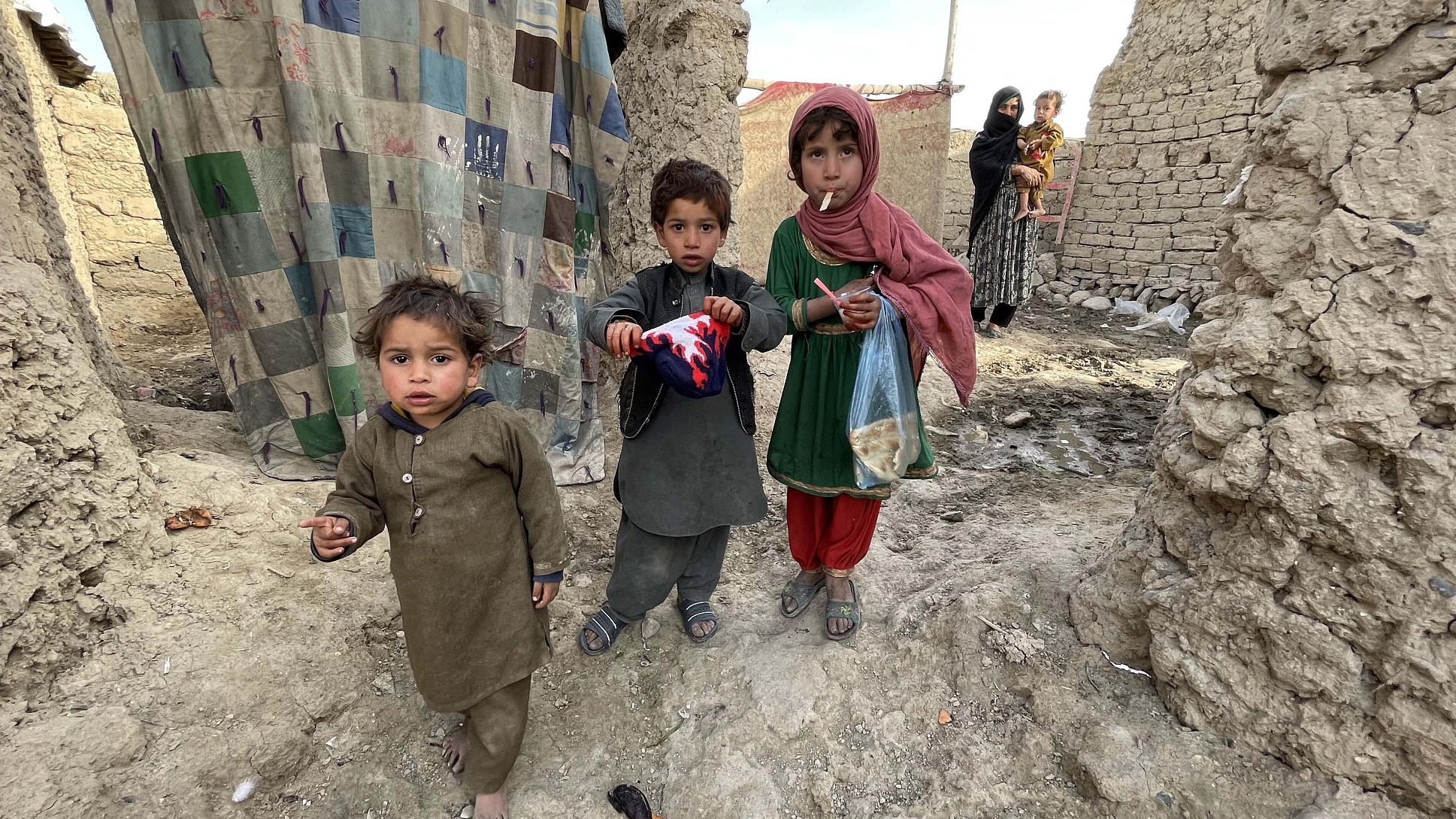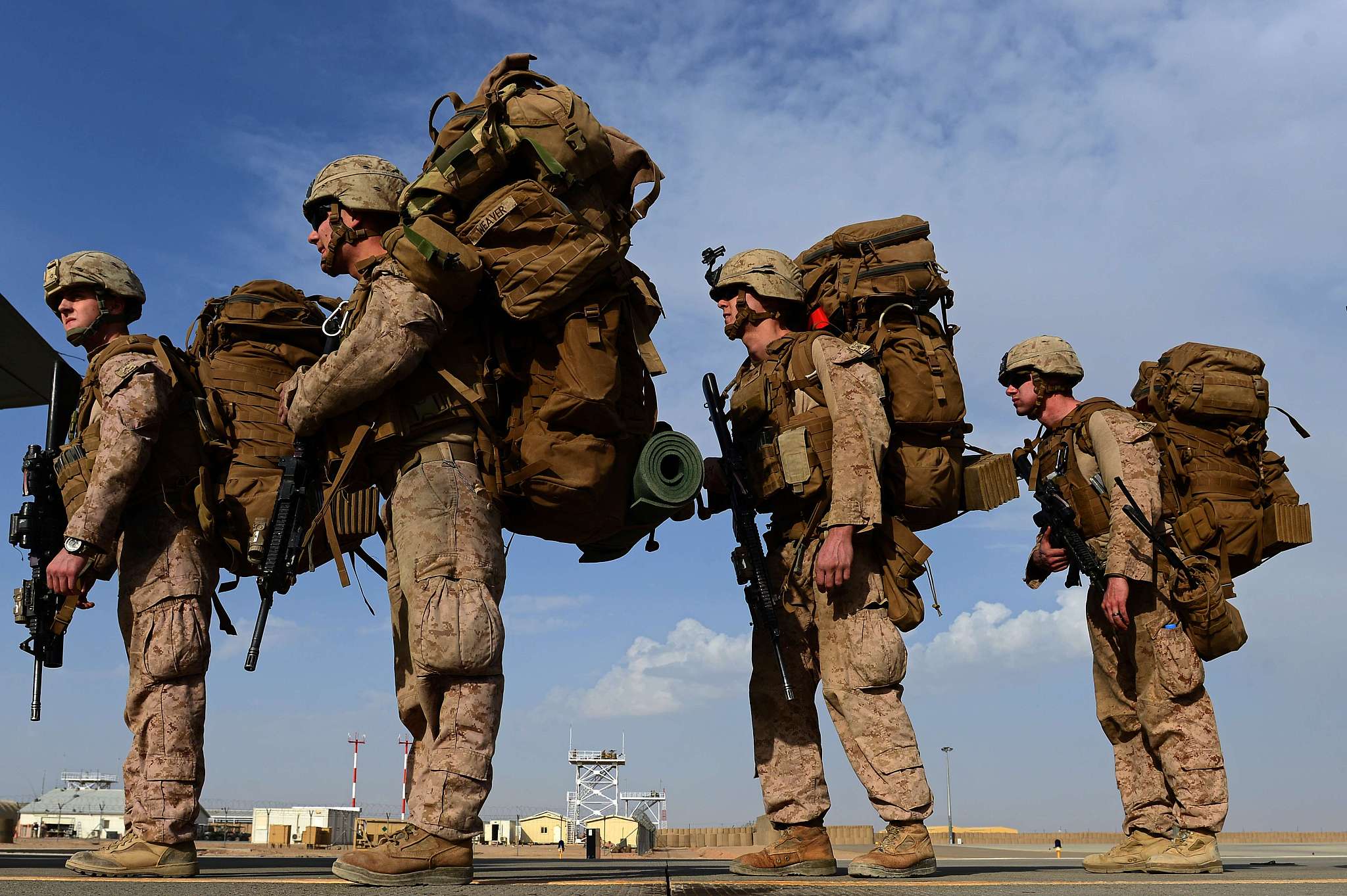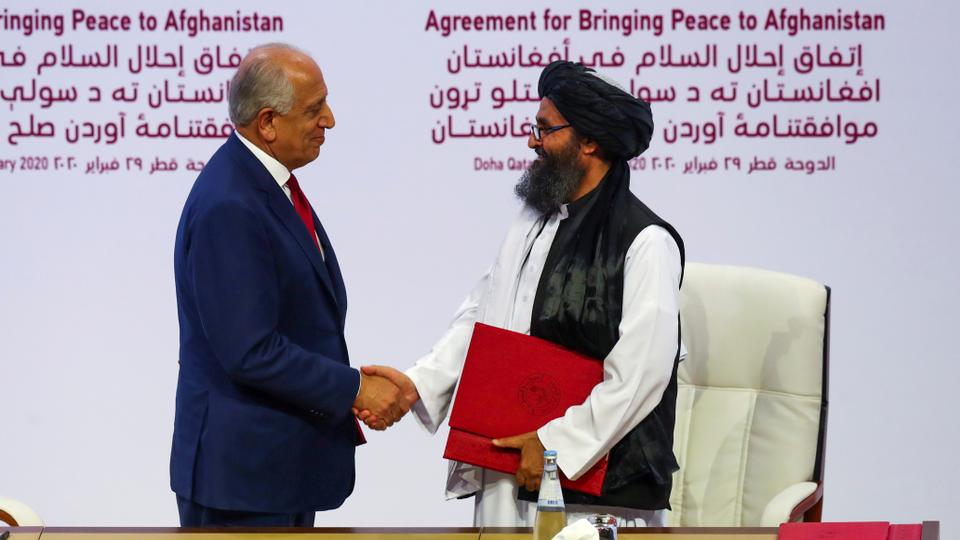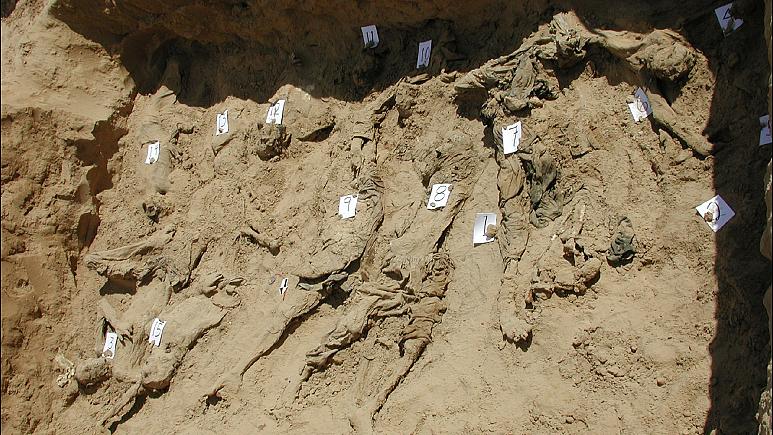
An average of five children have been killed or wounded every day for the past 14 years in war-wrecked Afghanistan, according to Save The Children. /VCG
An average of five children have been killed or wounded every day for the past 14 years in war-wrecked Afghanistan, according to Save The Children. /VCG
Twenty years on from the American invasion of Afghanistan following 9/11 terrorist attacks, U.S. President Joe Biden on Wednesday announced his decision to withdraw all U.S. troops from the country by September 11.
"The Taliban wanted a U.S. exit, they got it. What we want now from the Taliban is peace and life in dignity and harmony," tweeted Afghan peace negotiator Fawzia Koofi.
This comes a day after the armed group refused to participate in a 10-day meeting, scheduled from April 24 to May 1, to chalk out a possible political solution in Turkey.
"Despite the peace talks, there is no peace on the ground," political commentator Prof. Faiz Zaland told CGTN Digital.
"All sides have lately been using more aggression to gain leverage in the negotiations. The country recorded a 29-percent jump in civilian casualties in the first three months of 2021," he said, citing the latest United Nations Assistance Mission in Afghanistan (UNAMA) report.
Biden's move flies in the face of caution advised by U.S. spy agencies.
U.S. Congress members Michael Waltz, Liz Cheney, and Scott Franklin wrote to U.S. Secretary of State Anthony Blinken on April 12: "The intelligence community has repeatedly warned that U.S. withdrawal will allow these groups to thrive and maintain safe havens."

U.S. Marines are to board a C-130J Super Hercules transport aircraft headed to Kandahar as British and U.S. forces withdraw from the Camp Bastion-Leatherneck complex at Lashkar Gah in Helmand province, Afghanistan, October 27, 2014. /VCG
U.S. Marines are to board a C-130J Super Hercules transport aircraft headed to Kandahar as British and U.S. forces withdraw from the Camp Bastion-Leatherneck complex at Lashkar Gah in Helmand province, Afghanistan, October 27, 2014. /VCG
The Biden administration bequeathed the U.S.-mediated Doha peace agreement, reached between the Taliban and U.S. government in February 2020, from the previous Trump administration.
According to Ihsanullah Sediq, political representative of the National Islamic Front of Afghanistan, the next five months will be crucial for the future of Afghanistan.
"Doha peace pact called for the U.S. forces to evacuate by May 1 and the Taliban to cut ties with Al Qaeda. Both sides have failed to walk the talk," Sediq told CGTN Digital. "Afghan government has been reluctant in releasing prisoners."
Sediq said that the Turkey summit "can provide an environment for all parties to build mutual trust," adding, "A compromise situation is the solution – U.S. compromise with the Taliban, and the Taliban comprise with the Afghan government."
But Prof. Zaland said he was not very optimistic about the peace deal. "This is a mistake, U.S. should not have extended the deadline until September 11."

Mullah Abdul Ghani Baradar (R), the leader of the Taliban delegation, and Zalmay Khalilzad, U.S. envoy for peace in Afghanistan, shake hands after talks in Doha, Qatar, February 29, 2020. /Reuters
Mullah Abdul Ghani Baradar (R), the leader of the Taliban delegation, and Zalmay Khalilzad, U.S. envoy for peace in Afghanistan, shake hands after talks in Doha, Qatar, February 29, 2020. /Reuters
What if peace talks collapse?
"There's a lot of opportunity for a civil war," warned Sediq, adding "There are many political figures and factions willing to fight amongst each other to gain power."
Prof. Zaland echoed, accusing the U.S. of "investing in corrupt and criminal people to democratize Afghanistan."
"Many locals do not support the government, but also don't support the Taliban. They don't trust the U.S. troops who committed war atrocities and carried out genocides," Prof. Zaland explained.
According to Sediq, "The U.S. troops were not trained to understand and respect Afghan people's culture and religion. The U.S.-backed government does not differentiate between people who look like Taliban and those who actually support the group."
Sediq pointed out that the U.S. "has failed to establish a government accepted by all people in the last 20 years," emphasizing, "The international community should oversee the creation of a transition government until a new stable government takes charge, paving the way for a peaceful departure of the U.S. troops."

A mass grave discovered in 2001 in Dasht-e-Leili, Afghanistan. /AP
A mass grave discovered in 2001 in Dasht-e-Leili, Afghanistan. /AP
Winners and losers?
The Special Inspector General for Afghanistan Reconstruction (SIGAR) reported in April 2019 that "the U.S. military is no longer producing its district-level stability assessments of Afghan government and insurgent control and influence" as it "was of limited decision-making value to the [U.S.] Commander."
A quarterly report published by SIGAR in 2018 revealed that the Afghan government controls or influences only 55.5 percent of the country's districts, lowest since 2015. While the Taliban control has risen to 12.5 percent of districts from just seven present in 2015. The remaining districts are contested.
An investigation by Craig Whitlock of the Washington Post found that "the Bush, Obama, and Trump administrations sent more and more troops to Afghanistan and repeatedly said they were making progress, even though they knew there was no realistic prospect for an outright victory."
As Prof. Zaland concluded, "The U.S. stands defeated in its longest war, but no one will ever accept defeat."

